by Georgia Soares, PhD candidate Graduating in May 2025
Manuel Bandeira’s poem “A Morte Absoluta” (“Consummate Death”), first published in Portuguese in 1940 and newly translated by Candace Slater in 2018, contemplates…
What makes Jewish American literature Jewish? What makes it American? This course will address these questions about ethnic literature through fiction, poetry, drama, and other writings by Jews in America, from their arrival in 1654 to the present. We will discuss how Jewish identity and ethnicity shape literature. We will consider how form and language develop as Jewish writers “immigrate” from Yiddish, Hebrew, and other languages to American English. Using the collection, Jewish American Literature: A Norton Anthology, we will read a variety of authors, including Isaac Mayer Wise, Emma Lazarus, Isaac Bashevis Singer, Celia Dropkin, Abraham Cahan, Anzia Yezierska, Saul Bellow, Philip Roth, Cynthia Ozick, Allegra Goodman. Students who take this course will explore the ways that Jewish culture intertwines with American culture in literature.
The novel has been described as the quintessential literary form of modernity, but do we know what a novel actually is? And is it just a modern form? In this seminar we will look at a range of pathbreaking works that have bent the norms of prose fiction and have opened up new ways of understanding the world, from antiquity to the present. Readings will include selections from The Odyssey, The Tale of Genji, and Don Quixote, together with a range of modern novels, informed by several important statements on the novel, especially by the writers themselves.
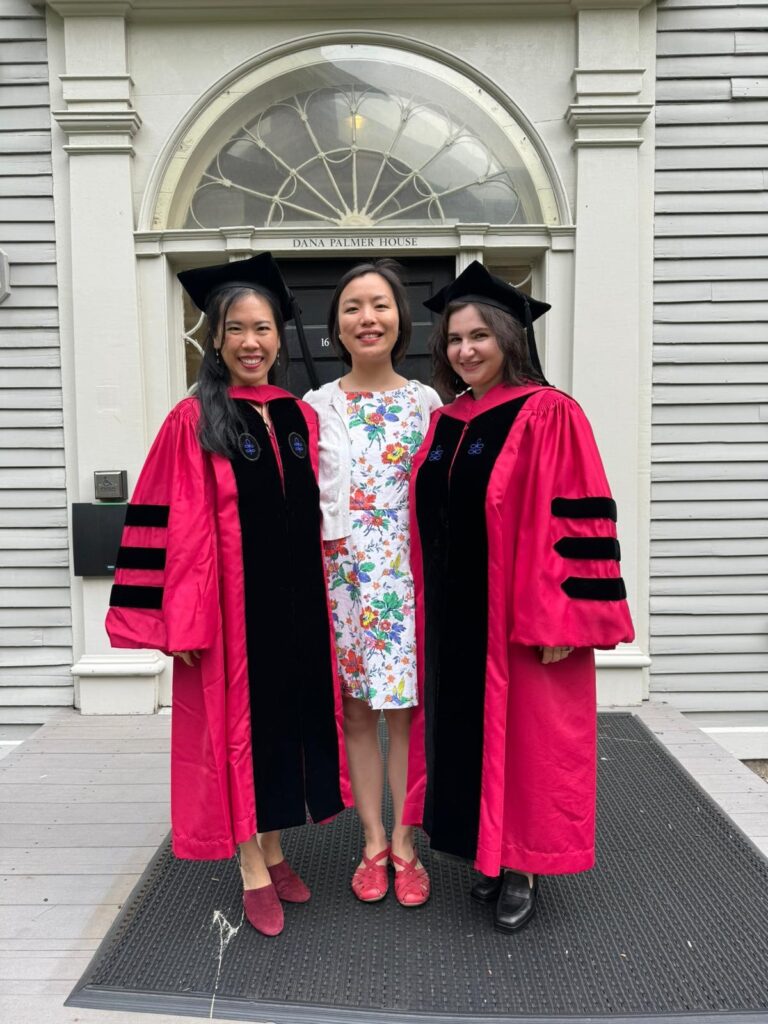


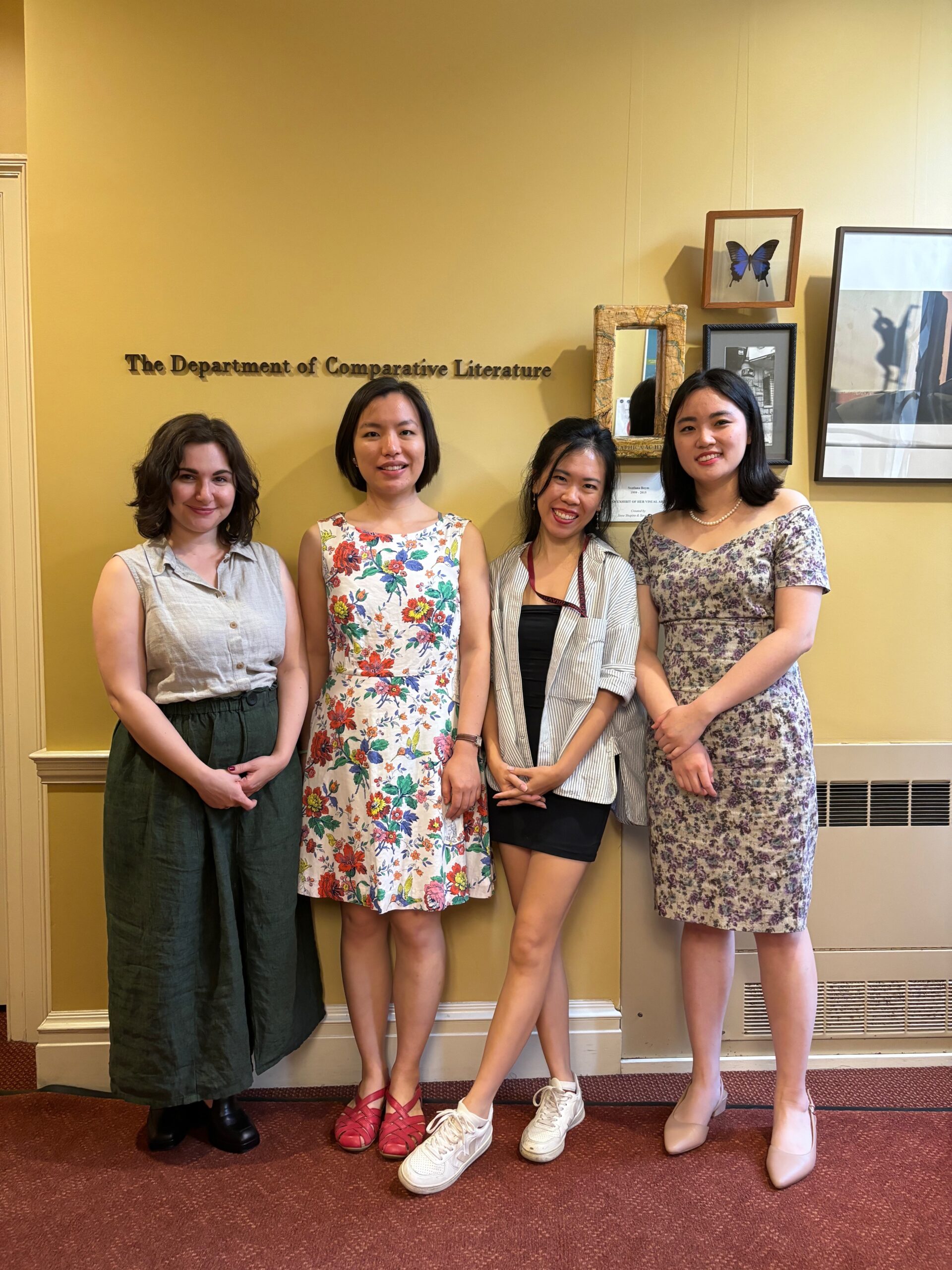


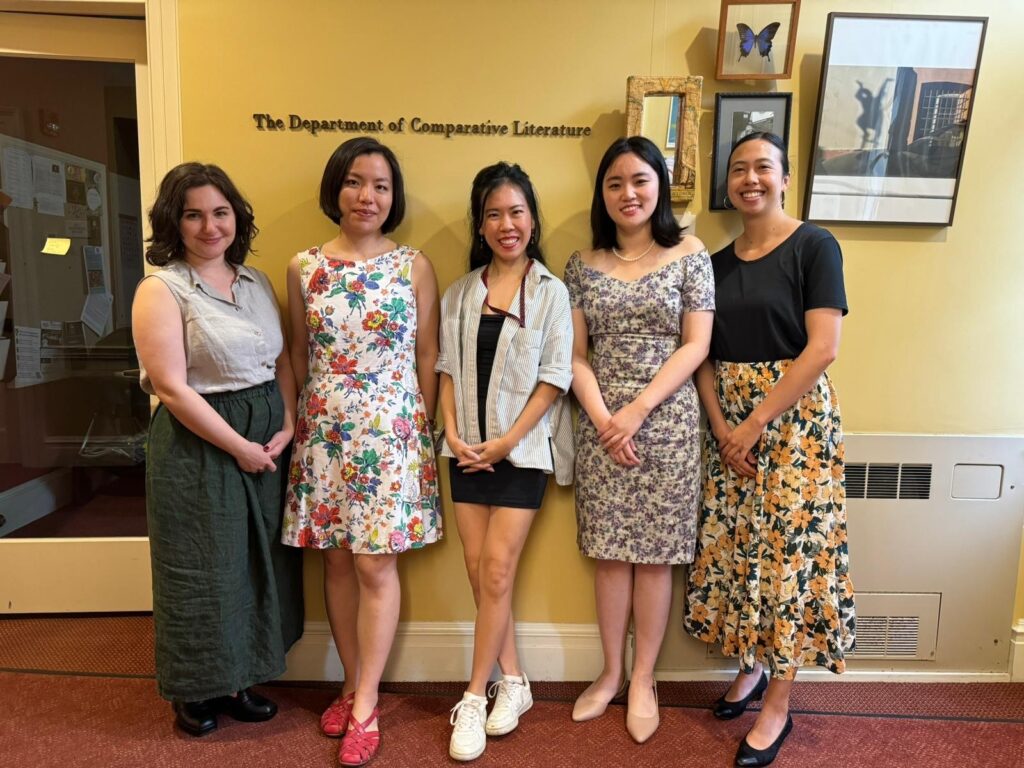
Congratulations to our 2023-2024 Graduates!


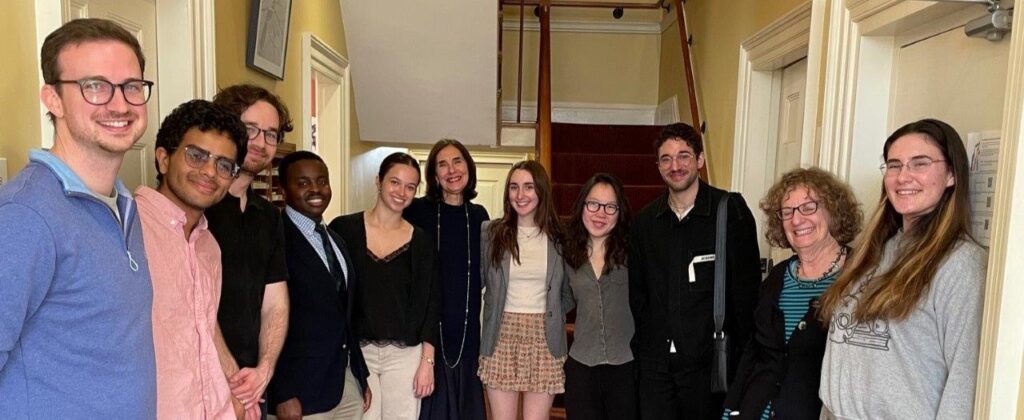
Congratulations to our seniors for turning in their senior theses!


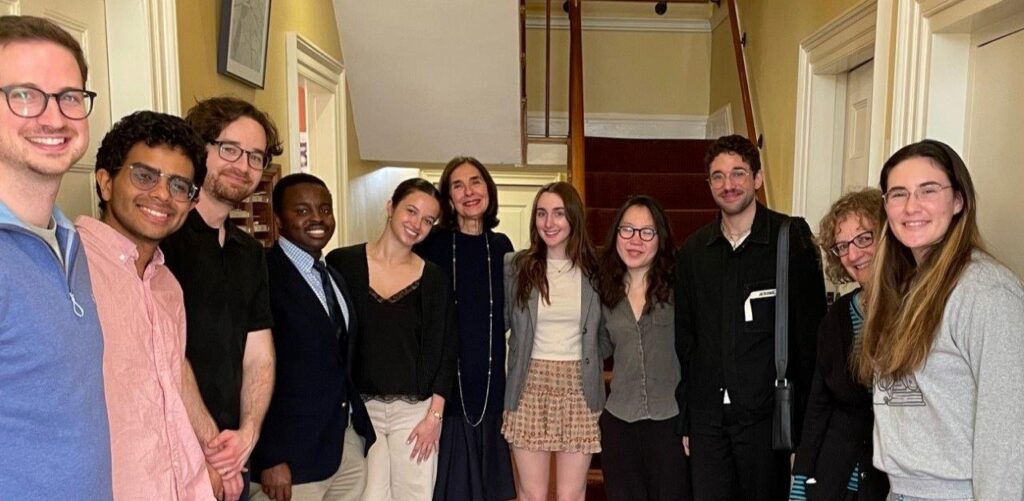
Congratulations to our seniors for turning in their senior theses!









Congratulations to our 2023-2024 Graduates!



Congratulations to our seniors for turning in their senior theses!



Congratulations to our seniors for turning in their senior theses!


In this class, we will explore over three thousand years of literature about what it means to create and live with artificial intelligences. In the process, we will address urgent questions about the purpose of work, the nature of love, the limits of agency, and the essence of creativity. At the same time, we will ask whether literature itself might constitute a kind of AI, with its vast repository of data about human experience and its variety of forms for recombining them–noting that, at least since Alan Turing, computer scientists have treated imitation or mimesis of human language as a key test of their machines.
Spring 2026: A re-examination of “Lyric” as occasion as well as genre. Central questions to be explored will include: how do the “lyrics” of composed song come alive in performance? For example, how do the two librettists of Puccini’s opera “La Bohème” contribute to the making of a masterpiece in song? Shared readings include “The Lyric Theory Reader: A Critical Anthology”, edited by Virginia Jackson and Yopie Prins. Students are free to select as their focus of research any particular “lyric” traditions, composed in whatever language. No previous knowledge of literary theory is presumed.
One of the towering literary figures of the 20th century, Italo Calvino is remembered for his inventiveness, versatility, philosophical acuity, and interest in exploring combinatorial and computational approaches to creative practice. Using as its point of departure his 1967 lecture Cybernetics and Ghosts, the course is built around readings of some of Calvino’s most celebrated novels, among them: The Castle of Crossed Destinies, If on a winter’s night a traveler, and Invisible Cities. But we will also read from his Six Memos for the Next Millennium and critical writings, from writings by figures in contemporary cybernetics and communication theory, and from the Italian structuralist tradition, Oulipo, and the Programmed Art movement of the 1970s. Class assignments will involve the speculative, creative, and critical use of Generative AI tools and the generation of plausible “new” works by Calvino forty years after his death.
In this course we will examine how media and communication technologies both drive and depict the complex set of processes known as globalization. We will explore case studies from sixteenth century maps to twenty-first century supply chains, as well as Huallywood, Hollywood, Bollywood, and Nollywood films. In the process, we will grapple with major questions and tensions that have defined the modern era. Why have human societies become more closely connected over the past few centuries than at any prior time in human history? How has this interdependence changed the ways that we understand ourselves and one another? What new visions and freedoms has it created? Why has it made us more unequal than ever before?
Spring 2026: We read a range of historically important works of literature from around the world—twice! We read everything carefully in more than one translation to learn the art of rereading, as well as how to enjoy and critique translations, not just read “through” them. We also learn about the structure of a range of languages, and think about how those languages shape their literatures. This is a great class to take if you’re thinking about learning a new language in the future. It’s also a good entryway to other literature and language classes for first- and second-year students, as well as for students concentrating in fields outside the humanities. Through a sequence of assignments in analyzing what translations do, we hone your writing for clarity, economy, and logic. This course also counts toward the Secondary Field in Translation Studies. Taught in English; no other languages required (just curiosity).

Reflecting the ongoing paradigm shift of comparative studies from an almost exclusive focus on Western European traditions to a newly global awareness, our faculty ranks have expanded in recent years to encompass a world-wide range of languages and cultures.
Check out our Prospective Concentrators and Peer Advisors
pages for more information.
Contact our Director of Undergraduate Studies,
Dr. Sandra Naddaff.
The Department of Comparative Literature has recently completed two tenure-track searches during the academic year 2023-2024: one in Translation Studies, the other in Media History and Archeology. No searches are anticipated for 2025-2026.

Founded as a graduate program in 1904 and joining with the undergraduate Literature Concentration in 2007, Harvard’s Department of Comparative Literature operates at the crossroads of multilingualism, literary study, and media history.
© 2023 President and Fellows of Harvard College
Sign up to receive news and information about upcoming events, exhibitions, and more